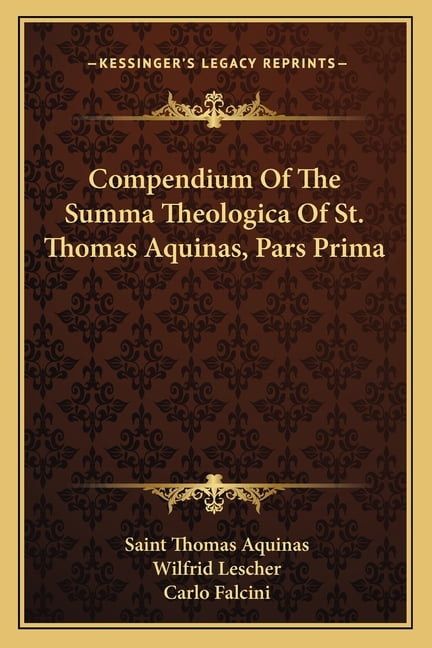
When his family found out, they felt so betrayed that he had turned his back on the principles to which they subscribed that they decided to kidnap him. In 1243, he secretly joined an order of Dominican monks, receiving the habit in 1244. He was particularly drawn to those that emphasized a life of spiritual service, in contrast with the more traditional views and sheltered lifestyle he'd observed at the Abbey of Monte Cassino.Ĭirca 1239, Saint Thomas Aquinas began attending the University of Naples. At the Benedictine house, which was closely affiliated with the University of Naples, Thomas also developed an interest in more contemporary monastic orders.


During those years, he studied Aristotle's work, which would later become a major launching point for Saint Thomas Aquinas's own exploration of philosophy. Saint Thomas Aquinas spent the next five years completing his primary education at a Benedictine house in Naples. Saint Thomas Aquinas remained at the monastery until he was 13 years old, when the political climate forced him to return to Naples. In Wisdom 8:19, Saint Thomas Aquinas is described as "a witty child" who "had received a good soul." At Monte Cassino, the quizzical young boy repeatedly posed the question, "What is God?" to his benefactors. Though Thomas' family members were descendants of Emperors Frederick I and Henry VI, they were considered to be of lower nobility.īefore Saint Thomas Aquinas was born, a holy hermit shared a prediction with his mother, foretelling that her son would enter the Order of Friars Preachers, become a great learner and achieve unequaled sanctity.įollowing the tradition of the period, Saint Thomas Aquinas was sent to the Abbey of Monte Cassino to train among Benedictine monks when he was just 5 years old. His mother, Theodora, was countess of Teano. Thomas had eight siblings, and was the youngest child. The son of Landulph, count of Aquino, Saint Thomas Aquinas was born circa 1225 in Roccasecca, Italy, near Aquino, Terra di Lavoro, in the Kingdom of Sicily. An authority of the Roman Catholic Church and a prolific writer, Aquinas died on March 7, 1274, at the Cistercian monastery of Fossanova, near Terracina, Latium, Papal States, Italy.

(1225-1274) Who Was Saint Thomas Aquinas?Ĭombining the theological principles of faith with the philosophical principles of reason, Saint Thomas Aquinas ranked among the most influential thinkers of medieval Scholasticism.


 0 kommentar(er)
0 kommentar(er)
